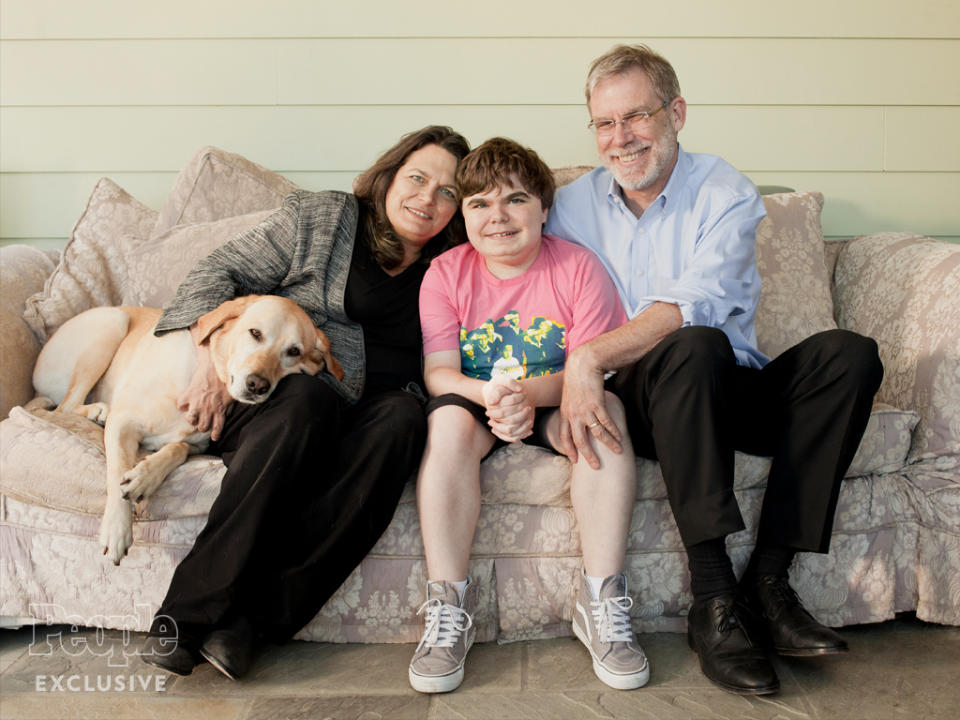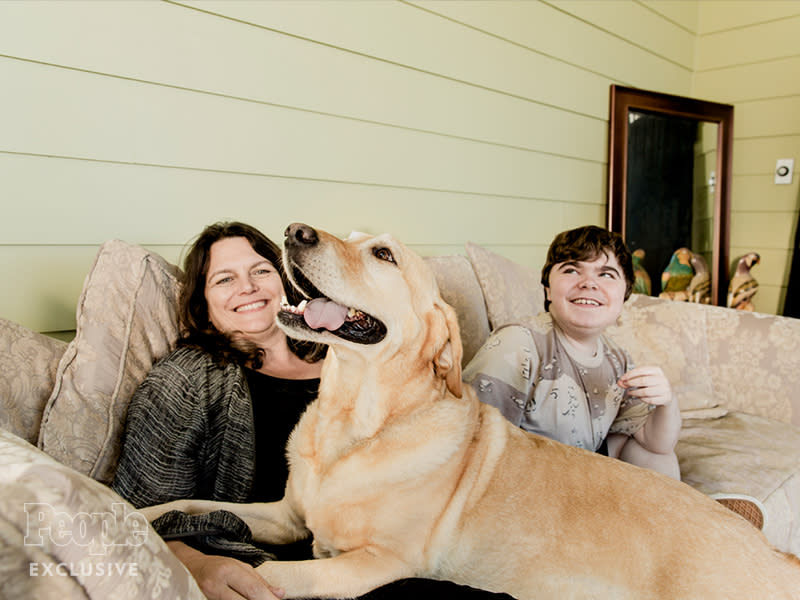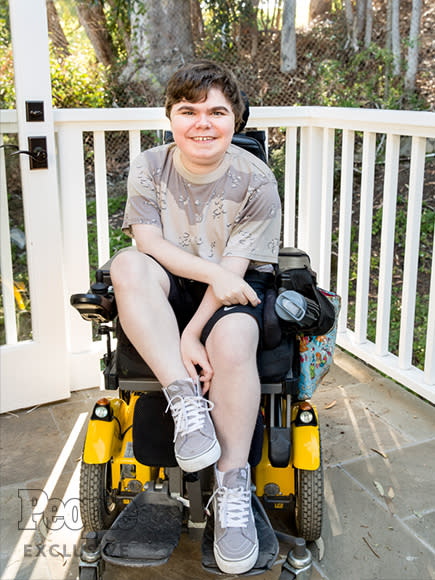Two Scientists Vow to Find a Cure for Their Son's Rare and Fatal Disease: 'I'm Proud of the Work My Parents Are Doing,' Says Teen
When Valerie Pappas Llauro's 5-year-old son Alexander was diagnosed with Duchenne muscular dystrophy – a rare and fatal form of the genetic illness that primarily affects boys – doctors said her son's only treatment options were "steroids and hope."
The steroids would help to slow down the muscle damage caused by his progressive disease, while the family held onto the hope that scientific research would lead to new treatments.
After countless doctors told Pappas and her husband, Jorge Llauro, that nothing more could be done, the Los Angeles, California, couple found Stan Nelson, a brilliant researcher who has dedicated his life to understanding and treating the rare disease.
"Meeting Stan was the first moment where we felt there could actually be some hope," Pappas Llauro tells PEOPLE.
Stan Nelson knows exactly what to say to parents of boys with Duchenne, because his own son has the diease. Nelson and wife M. Carrie Miceli's son Dylan was diagnosed with Duchenne in 2004 at 3 years old.
Both professors and researchers at the University of California, Los Angeles, Nelson and Miceli were shocked by Dylan's doctor's assertion that nothing could be done to save their son from losing the ability to walk by adolescence and eventually dying from heart or lung failure in his twenties.
"It was horrific," Miceli, 54, says. "We couldn’t believe this was a disease we've known about for so long and yet there was nothing we could do."
"We thought we could do a lot better," adds Nelson, 55.
So, the couple refocused their already prolific careers and dedicated their lives to fighting the disease that affects one in 5,000 boys worldwide.
Their efforts led to the founding of the Center for Duchenne Muscular Dystrophy (CDMD) at UCLA – one of a few centers in the nation that conduct cutting edge research and give boys with Duchenne access to state-of-the-art care and clinical trials.

Dylan, now 15, is one of more than 100 boys currently enrolled in various treatment programs at the CDMD. These programs, involving coordinated efforts of care specialists, research labs (there are 13 at UCLA alone) and clinicians, are likely to add 10-plus years to many patients' lives.
"As both scientists and parents of a boy with Duchenne, Carrie and Stan's unique perspective on the research and their value to the DMD community is unparalleled," says Dr. Barry Byrne, a professor at the University of Florida School of Medicine and a researcher who studies muscle diseases.
While his parents are working hard on developing treatments, Dylan has dedicated himself to helping the Duchenne community by raising awareness.
When Dylan found out that his parents' biggest challenge was Duchenne's relative obscurity, he reached out to his favorite YouTubers asking for help.
The resulting videos – in which Dylan pranks Smosh with Jennifer Lawrence and throws trick shots with ease from his wheelchair with Dude Perfect – have earned more than 17 million views and brought awareness of Duchenne to a whole new community.
"Raising awareness was my primary goal," he explains. "I think that's anybody's goal if you're living with a disease."
A quick-witted and gregarious teen, it's hard to believe that Dylan's first symptom of Duchenne was delayed speech. "By the time he was two, he couldn’t string two words together," Nelson says.

Then, after what Miceli calls a "diagnostic odyssey," Dylan was diagnosed. "There was a period of shock and grief where we were sort of in a cloud," Miceli says.
Over a period of months, the family, including Dylan's older brother Calvin (now 22 and an artist living in Brooklyn, New York) began to adjust to a new normal. "We made sure Dylan had the support he needed, but honestly, it's a hard thing to prepare for," Miceli says.
Miceli and Nelson installed a chairlift in their home and encouraged Dylan to use it to get up the stairs before he needed it so that when he did, "it wouldn’t feel like a defeat," Miceli says.
Dylan says his parents have always encouraged him to never let his physical limitations get him down. "My parents taught me to stay strong even when it gets tough, and it gets tough a lot," he says.

At age 12, Dylan lost the use of his legs and began using a wheelchair. "I was afraid of how people look at you when you can't walk," he says. "But it wasn’t as bad as I was expecting."
Now, Dylan serves as a role model for boys with disabilities – through his own YouTube channel and his continued advocacy for the CDMD.
"Dylan has handled everything with the most amazing grace," says Pappas Llauro. "When Alexander sees him and he sees his super cool motorized wheelchair and his videos on YouTube, he looks up to him. He's an incredible source of inspiration for a lot of kids."
Dylan's remarkable optimism will continue to be a necessity, as he and his family know things wont get easier any time soon. Developing successful treatments can take decades and while the FDA is currently reviewing what could be the first drug ever approved to treat Duchenne, only 13 percent of patients will benefit – and Dylan is not among them.
Even so, the whole family takes pride – and comfort – in knowing that strides towards new treatments that can improve quality of life and extend lifespans are happening every day at the CDMD.
"We started with the attitude that this is a horrible thing and if we can make this good for anyone, not necessarily our own son, then that will be of value," Miceli says.
"I'm proud of the work my parents are doing and I know it's going to pay off in the end," adds Dylan.

